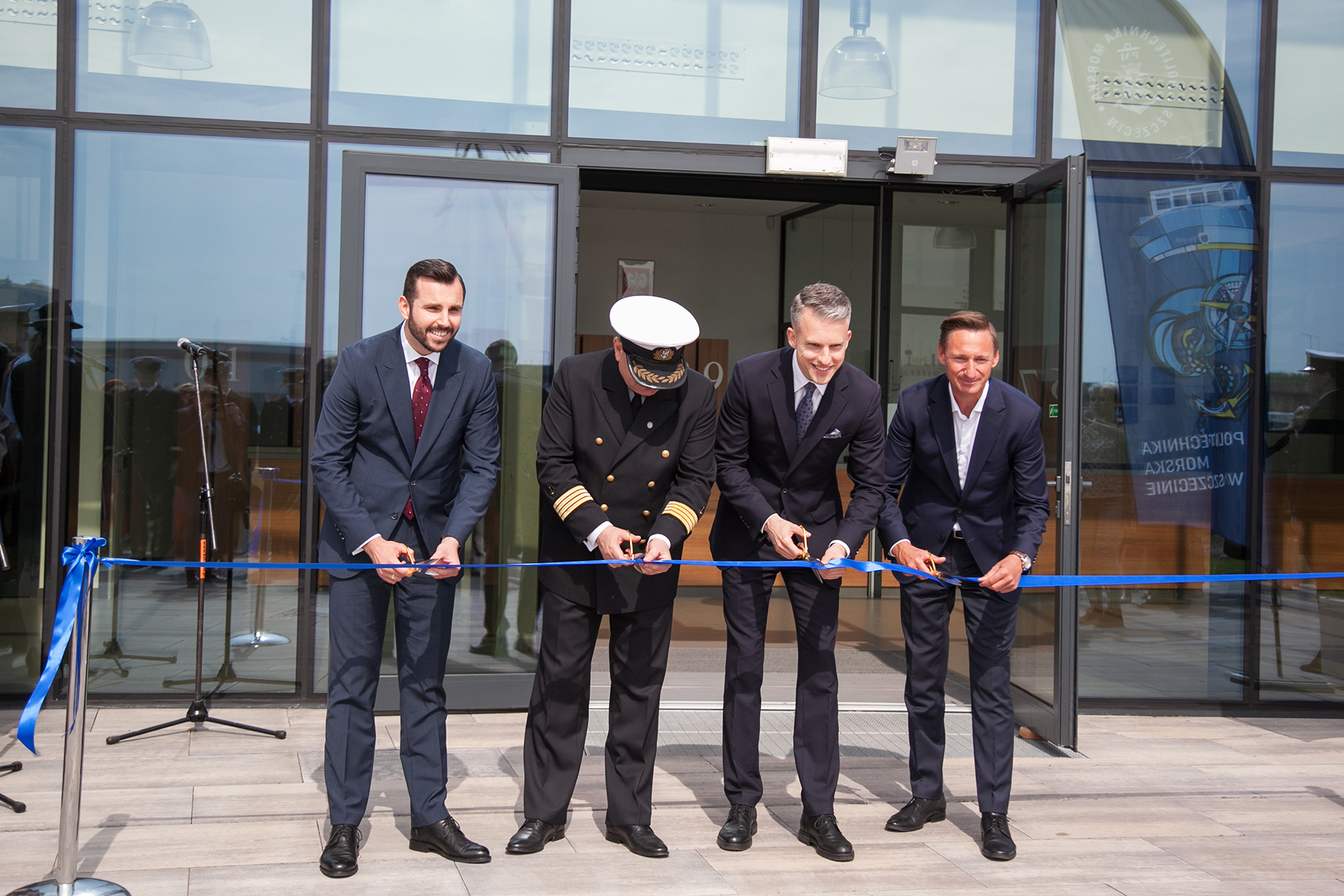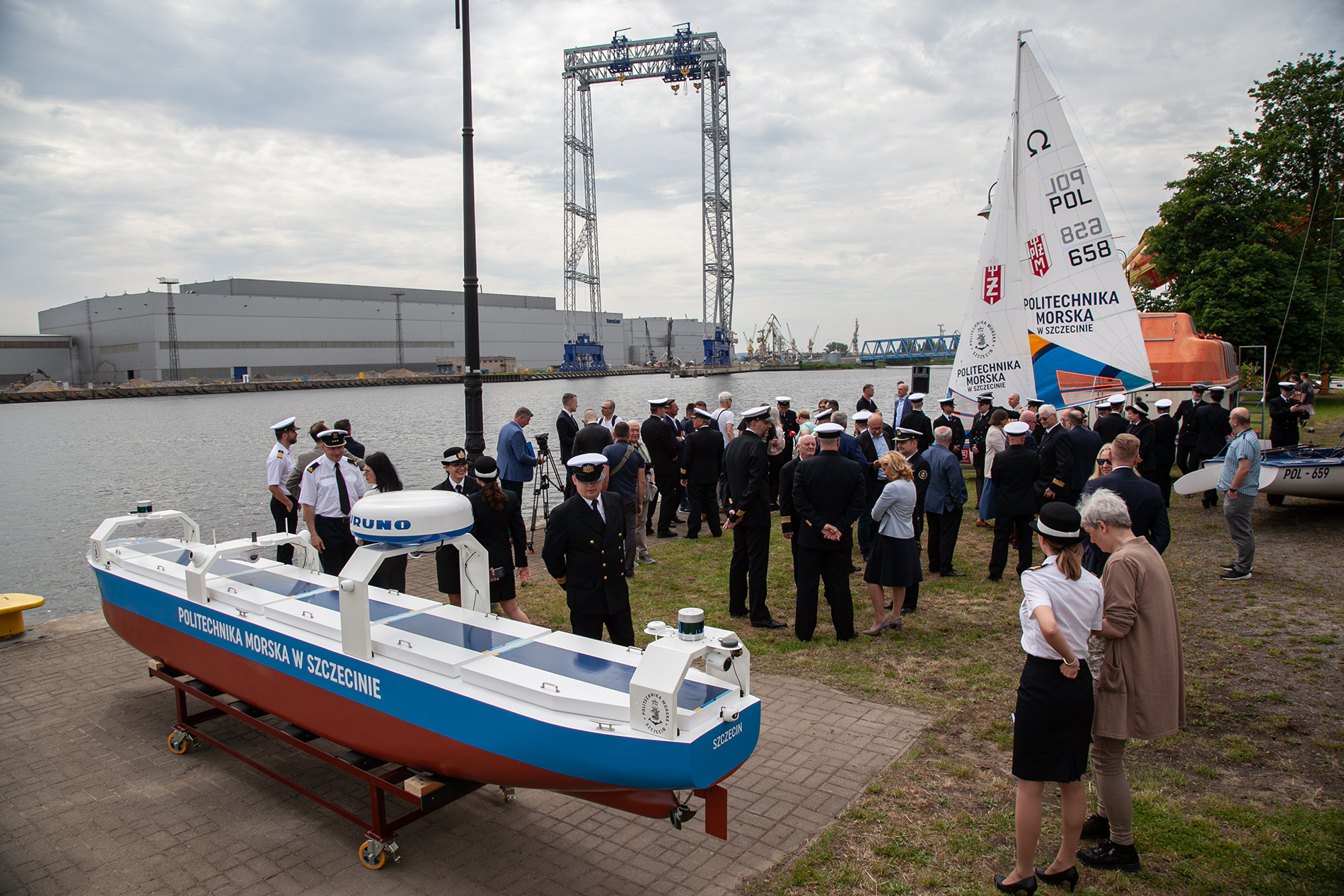Eleven modern and well-equipped laboratories including 2 large-scale ship models are ready to carry out research and develop maritime technology

MRDC was officially made operational on May, 27th 2024. The symbolic cutting of the ribbon was carried out by (as seen below) the Deputy Governor of the West Pomeranian Region Bartosz Brożyński, MUS Rector Wojciech Ślączka, Secretary of State at the Ministry of Infrastructure Arkadiusz Marchewka and Marshall of the West Pomeranian Region Olgierd Geblewicz.

The opening ceremony was also attended by the members of the university's authorities, MUS staff, and representatives of the maritime industry and institutions. MUS Rector welcomed the guests and presented a short introduction followed by speeches by Arkadiusz Marchewka and Olgierd Geblewicz. Next, the guests moved to the nearby quay where they experienced a presentation of 2 large-scale ship models.

MRDC researchers will deal with a selection of issues including:

The opening ceremony was also attended by the members of the university's authorities, MUS staff, and representatives of the maritime industry and institutions. MUS Rector welcomed the guests and presented a short introduction followed by speeches by Arkadiusz Marchewka and Olgierd Geblewicz. Next, the guests moved to the nearby quay where they experienced a presentation of 2 large-scale ship models.

| The models will be used in several areas including:
- automation of autonomous vessels - remote control,
- risk analysis for the operation of autonomous vessels,
- construction of mathematical models and algorithms for autonomous control of unmanned vessels,
- development of technology for communication between the onshore service centre and the deck of the unmanned vessel.
| New MRDC laboratories were also presented to the guests
11 modern laboratories were also open and nominations were handed over to the managers.MRDC researchers will deal with a selection of issues including:
- automation and autonomous navigation,
- navigation and satellite technology,
- new algorithms for satellite signal analysis,
- positioning of moving objects - on the water surface or in the deep sea,
- development of modern infrastructure,
- seabed research,
- hydro- and cartographic surveys,
- safety issues and efficient risk calculation in shipping.














